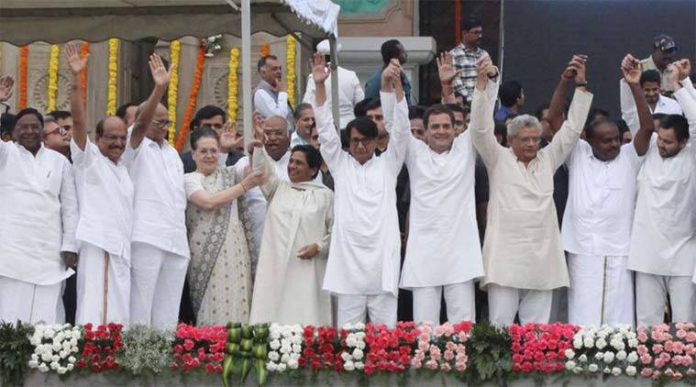- Indian political churning is always fascinating to not only observe the way it usually pans vividly and not so vividly out but also provide a myriad of surprises that is not easy to fathom for the uninitiated. That the politics in the country usually revolves around caste equations has been well documented and acknowledged by all concerned. The undiminished clamour for quotas and reservations in education and government jobs based on caste, creed, and class offers the political class to pursue such a divisive agenda. What should have been ideally consigned to history books as the nascent nation started its baby steps soon after the independence has sadly become an important tool for the politicians to play with to win over the electorate.

PC: Samriddhi Thakar
- Needless to mention, the politicians at the national and regional levels are divided largely identifiable on the lines of communal and secular credentials. The diversity, distinctiveness, and cultural melting pot witnessed across the large swathe of the country’s topography extend fertile opportunities for the political class to play around. However, since the Bharatiya Janata Party has assumed power at the centre, the political narrative has centered around communal and secular lines. The unabashed Hindutva agenda assiduously pursued by the BJP has ensured that society is deeply polarized. Several parties like Congress and Aam Aadmi Party have tried to peddle a soft-Hindutva approach but have succeeded in eliciting a lukewarm response from the electorate.
- Thus, the Modi government appears firmly entrenched at the centre surging ahead through its incredibly efficient and relentless election machinery in pursuit of triumph. Against this backdrop, Bihar’s chief minister Nitish Kumar attempting to unite political parties opposed to BJP come as yet another exercise at presenting a front that eventually finds itself pulling in different directions. The nation is witness to several such efforts in the past. He may deny it, but Nitish Kumar nurtures an ambition to position himself as an opposition PM candidate in the 2024 Lok Sabha elections. Indeed, Nitish is a politically savvy leader having been in the saddle of Bihar as CM time and again with different coalition partners, without representing a dominant party in the state.

PC: Sahil Saini
- Remember, the advent of Modi to national leadership has been accompanied by a transformation of LS contests as ones akin to presidential contests. Thus, there are good reasons to argue that comparisons with earlier coalitions are irrelevant. Even if, a big if, a united opposition bloc is forged before the 2024 general election, unlike in 1996 and 2004, it will be a tall order to form a government. It’s no exaggeration to say the choice in LS 2024 will be mainly about the PM’s post rather than the political party or individual candidate. Mind you, citizens may reject BJP in state elections but vote for Modi overwhelmingly during Parliamentary elections. It’s unlikely the situation will change in the ensuing LS polls. The opposition will have a humongous task ahead.






